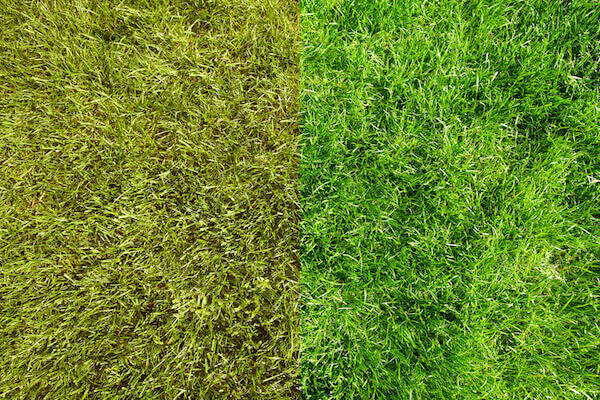
Best Fertilizing Practices for your Florida-Friendly Lawn
The healthiest Florida-friendly lawns do a lot more than boost the value of the homes that rests on them. While this is a definite perk of proper maintenance, it can also do wonders for the environment, including: reducing soil erosion, filtering storm water runoff, cooling the air, and reducing not just glare but also noise. By filtering and capturing sediment and pollutants, your lawn can make a difference for your nearby surface waters and groundwater.
However, the best practices of turf grass maintenance are not well-known, and this can have just the opposite effect on your environment. That being said, homeowners who take on the task of caring for their lawns should be equipped with the knowledge necessary to make a great difference. Using Florida-friendly landscaping principles, these best practices have one goal: to reduce your lawn’s contribution to pollution. Today, we’ll focus on the best fertilizing practices for your lawn.
- Fertilize Responsibly
In order to achieve this practice, you should do your research and ensure that you’re selecting the right fertilizer, applying it at the right time, and applying it in the right amounts. From the start to the end of growing season, your lawn will require the nutrients in fertilizer, which will differ depending on grass species and where you’re located. The Florida Department of Agriculture and Consumer Services passed a rule several years ago that required manufacturers of fertilizer to use specific language on their bags. By doing this, they are helping to prevent misapplication of lawn fertilizer. That being said, pay attention and read carefully! - Select the Best Fertilizer
In the state of Florida, there are labeling requirements that will make your fertilizer choices clearer. However, there are still ways to get confused. For example, do not use a fertilizer meant for flowers or vegetable gardens on your lawns. If you are experiencing what you believe are deficiencies in your soil, there is no harm in doing a soil test to find out for sure, especially if symptoms exist. Symptoms include: reduced growth and dark green followed by purple shoot colored leaves. By testing your soil, you can identify a phosphorous deficiency and allow for the opportunity to supplement your current fertilizer plan. - Get the Timing Right
Because many grasses grow in response to increase in temperature and length of the day, the summer is often the time of most active growth. While this is when grass absorbs nutrients the most, that also means that there is a greater need for these nutrients. This is where your fertilizer comes in; the truth is that you should be fertilizing only when grasses are growing. If the grass does not need the nutrients, they can not only leach through the soil, but they can run off into local water systems. - Apply the Right Amount
As a general rule, you should be applying no more than 1 pound of nitrogen for every 1000 square feet of lawn every time you apply fertilizer. Checking your bag of fertilizer to figure out what percentage of nitrogen it contains will help you get started. One of the most important parts of figuring out how much fertilizer to apply is knowing the size of your lawn. To do this successfully, break it up into the front, back, and sides of your house. - Know if You Live in an Ordinance Area
There are several cities and counties in the state of Florida that have passed fertilizer ordinances, so what does this mean for your lawn? Typically, these ordinances do not allow for application of nitrogen or phosphorous fertilizers during the summer, to avoid the affects of heavy rainfall and runoff.
These are only a few of the best practices you can employ when fertilizing your Florida-friendly lawn. While there are plenty of people in Florida who think they know everything there is to know about lawn maintenance, the available information and room to improve is endless. The more you educate yourself and others on the best ways to manage your lawn, the greater effect you will have on the environment around you. If the environment could talk, it would certainly thank you for doing your part and making a difference!